Located on the seaside, Grand-Béréby is the economic centre of a vast sub-prefecture between the Ivorian port city of San Pedro and the border with Liberia. Since July 2022, Grand-Béréby hosts Côte d'Ivoire's first decreed Marine Protected Area (MPA).
Along the 50 km of protected coastline, several villages group together fishermen, fishmongers and cocoa and rubber farmers (some of whom also fish), while a few sparse hotels receive tourists looking for virgin palmtree beaches and, above all, the turtles that come to lay their eggs on the shore between August and November. An idyllic setting? Only that, despite the law banning turtle hunting, ten years ago the local communities were still eating them...
The Marine Protected Area was created on the initiative of Jose Gomez, a veterinary doctor of Spanish origin, who, during a visit to Sassandra in 1997, found several species of protected turtles for sale at the market. After several years of knocking on many doors without much success, he was finally able to secure some small funding. Together with a student, Alexandre Dah, now president, they founded the local NGO Conservation des Espèces Marines (CEM), and started working on 10-15km of beach. Then in 2017, they managed to convince the people to create a voluntary Nature Reserve. Two years later, they received funding to lay the foundations for an MPA: "As there is now a political will, the Grand Béréby MPA went through like a letter in the post." For the time being, though, the management plan with precise coordinates for the MPA is still missing and there is not yet a decree assigning the management responsibility to a competent body. The Directorate for Ecology and Nature Protection (DEPN) is acting as interim manager.
To help the maritime police monitor the area, CEM has purchased a speedboat and continues to finance the fuel, maintenance, and salary of the crew (both former fishermen). These policemen go out to sea more or less twice a month, following a plan that aims at catching offenders. But they do not go out at night. In 2009, four of their colleagues disappeared during a hot pursuit of Ghanaian trawlers suspected of illegal practices. There was no outcome of the investigation. Once bitten, twice shy. They wait until dawn to go out, even after the alerts, keeping their fingers crossed to get to the spot indicated by the communities or the fishermen in time. According to Adjutant-chief Prao, the patrol boat is proving to be a deterrent despite the challenges: "Since we have the speedboad, the trawlers have not fished as close to the coast."
Prior to the arrival of the speedboat, the maritime police focused on the landing sites on land. They are also responsible for checking the licences and insurance documents of the motorised canoes, as well as carrying out technical inspections. The law requires these canoes to have a fire extinguisher, a first aid kit and lifebuoys. But none of them really meet these criteria. It is in fact difficult to keep track of these canoes, as the fishermen, especially those of Ghanaian and Liberian origin, move seasonally even across borders to find fish. Moreover, Officer Prao reasons, "if we press too hard, we will suffocate the fishermen, there will be no more fishing, and therefore no more fish to eat."
In Grand-Béréby, the formal gives way to the informal in a vast network of interwoven social relations. The NGO CEM quickly understood this: without the support of the wider community, without the buy-in of all stakeholders, nature conservation cannot be effective. But to get them on board, you have to listen and address the challenges they face on a daily basis. Either sitting at the meeting table, or driving through the villages, Abel Gba, a project manager at CEM, thinks about what new projects could help communities: "Would a solar irrigation system for crops interest them? Will our donors support this?"
The recipe: responding to the needs of communities before demanding efforts from them
Jose Gomez, founder of the NGO, explains that they started little by little, with "social" projects, to raise awareness among the population. The key to success was the dialogue with the parties who seemed to lose the most with turtle conservation: they brought the poachers back into their camp. Picard Amiral, a poacher converted to a focal point for the CEM in the village of Roc, patrols the beach at night during the egg-laying season and collects nests to take back to the hatchery. Since 2012, he has assisted more than 10,000 baby turtles to reach the ocean. "Before, I used to earn twice as much from poaching, but now, even if I earn less, the whole community, my parents, benefit and I can be proud of my work." This ecoguard also works with the young people of the village who have arranged the beach of Roc and built an ecolodge with bamboo and palm leaves to welcome visitors a few steps away from the hatchery.
Picard explains that he almost died of an infection in his hand. The village dispensary, built by the Orange Foundation, provides access to health care for the Roc population since June 2018 and decongests the maternity ward in Grand-Béréby. "Without the doctor, I would be dead," he says, referring to Marc Ane Etilè, the centre's nurse. The latter gives the figures: even if Roc has more or less 800 villagers, its area of responsibility goes beyond that, with several other villages "in the bush". He treats more than 150 patients per month, besides the regular consultations for nutrition, vaccinations and childbirth. "Since the beginning of the month, there have already been seven deliveries," he says. He worries about the lack of beds. We count four beds in the observation room. They are already rusting after five years due to the humidity.
"There is a drinking water shortage in the area, so we have been working on water towers with solar systems and taps," explains the president of the CEM, Alexandre Dah. So far, they have built five water towers, rehabilitated a school, built three community halls, and offered free mobile health campaigns. "This was the way to protect biodiversity, increase fish production and support the community," he concludes.
A few kilometres further on, in Dawa, Alain Nemle Toh is measuring a guitar ray caught by a local fisherman. This species was added in November 2022 to Appendix II of CITES, the Convention on International Trade in Endangered Species of Wild Fauna and Flora, and although there is still no enforcement order in Côte d'Ivoire, the CEM has started collecting data and raising awareness among fishermen. Despite them being prohibited, we can find monofilament nets all around the dugout canoes parked on the beach.
Here, fishing is genuinely artisanal: the canoes are simply carved out from the trunks and fishers paddle for hours before arriving at the place where they can throw the nets. The fishers go out at 1am and come back at about 3-5pm. If the wind is favourable, they hoist a sail. If the wind is not favourable, they sometimes return late at night. There are neither security measures nor tracking devices on board. Yesterday, a strong wind pushed three Dawa canoes much further out to sea. "We can't reach them on their phones." All they can do is pray.
The needs are overwhelming. They would like motorised canoes, like the Ghanaian fishermen of Grand-Béréby. The chief fisherman, who is of Liberian origin, Wèh Assié, insists: "If you want to help the women, you have to help us." The women nod their heads several times and "yes" can be heard among those listening. Unfortunately, fishermen are not really organised for effective pleading.
Fishing: the powerhouse of coastal villages and the hope of better living conditions for women
The women of Dawa, on the other hand, driven by the needs of their families and encouraged by the Union des Sociétés Coopératives des Femmes de la Pêche et Assimilées de Côte d'Ivoire (USCOFEP-CI), have come together in the Association de Femmes pour le Développement de Dawa (AFDD): "We wanted to help our husbands to provide for our families," explains Charlotte Wadé, wife of the tribal chief and president of this association, soon to be a cooperative, of 30 members.
Sitting around the table at Charlotte's house, where they shared with us kola nut, chilli, water or soda and a sugar cane-based alcoholic drink, symbols of Krumen hospitality, they tell us how the association helps them face problems together. "We contribute 500 CFA francs per month, and then, if there is a birth, an operation or a serious illness, we contribute 1000 CFA francs, and if there is a marriage or death, 2000 CFA francs.”
In Dawa, the CEM, with the help of the Spanish regional cooperation, built a community covered courtyard, a water tower and donated a solar freezer for the AFDD. "The important thing is to be present. When things break down, we are there," says Gomez, who remains transparent in the face of small challenges. Here, the tap has not had water for a few days because the source from which the water was drawn to supply the castle has dried up. It has rained recently, but perhaps not enough. The NGO is not able to drill and is encouraging the villagers to call on the state for this. In the meantime, they walk 200 metres in the hot sun to fill their buckets and make ice in plastic bags.
However, the big challenge is the lack of funding. The women's main activity is selling fish. "When you have the equipment, you have to work. But the raw material must be paid for. If we don't have money, the fishermen sell elsewhere," explains Louise Toh. For the moment, the solar freezer is empty, with just a few bags of ice in case the fishermen from the village bring back some fish today. Like in Grand Bereby, they lost all their working capital during the first months of the Covid-19 crisis.
Ghanaian fishermen at the Grand Béréby landing site blame sanitary restrictions as well as the tightening of phytosanitary requirements. The closure of restaurants and travel restrictions gave the final blow. "The lobsters, the noble species, that we had sent, spoiled on the road because of the controls," explains Jean-Jacques Ino, a fishmonger who helps the women's cooperative of Grand Béréby. They have named their cooperative "DECOTHY", which means "one step at a time". The women fishmongers in the area are indeed showing patience, as they still struggle to recover three years after the crisis began.
In Grand-Béréby, USCOFEP-CI worked with CEM to set up a fully equipped solar complex: an ice machine powered by a water tower, with a cold room and a 20-foot freezer. The ice machine aims at removing the need for plastic bags that are currently used to make artisanal ice. These bags can be found all over the sea and at the landing sites. The women can now fill basins with the ice flakes and store it in the cold room.
Here, the system installed since September 2022 is temporarily stopped because it has been cloudy for two days and this slows down the charge of the batteries. They decide not to open the freezer too often. For the moment it's not too serious, because, as in Dawa, there is not much fish. Most of the fish is landed in San Pedro for the big clients in Abidjan. Jean-Jacques Ino asks for support for the structure, and even funding. Micheline Dion, president of USCOFEP-CI, stresses however the need for training for these women: "When a woman is not trained, even with better quality equipment, she cannot make it profitable." Meanwhile, the argument most often put forward by banks for refusing to grant credit (fish, a perishable product) has finally been overcome: thanks to the CEM, they have access to reliable means of preserving their products.
Conservation: the stage is set for true co-management of the MPA
CEM has been working with the communities to agree on the zones. It is not yet official, but these zones allow for a small 'buffer' strip of subsistence fishing for local communities, a zone for artisanal fishing but free of trawling and closed to industrial fishing, and fully protected areas, which are mainly located at the mouths of the most important rivers and breeding grounds for fish species (mangroves).
In the south of the sub-prefecture, there is also talk of establishing a voluntary forest reserve, which would mean that it would be entirely managed by the community and would receive only technical and financial support from the DEPN department.
In 2022, the Ivorian government announced the creation of five marine protected areas. Even if for the moment there is only a decree for Grand-Béréby, two of them would also be located in the Bas-Sassandra district, with similar characteristics. Alexandre Dah considers community participation and acceptance to be a major priority: “Conservation is for us, not conservation for conservation's sake: there has to be an appropriate place for the communities.” In the Tabou area, it would be desirable, say the CEM workers, for the same process to be put in place. It remains to be seen whether or not the recommendations fall on deaf ears.
As for international donors interested in conservation, it is still difficult to convince them of the importance of sustainable development of local communities, which Gomez calls the "social" aspect: "The little experience we have with those who fund biodiversity is that they talk about helping communities but it is practically anecdotal: the amounts they are willing to spend are derisory compared to other budget lines." For these social actions, they have had to call on other donors who are more used to working on cooperation and development issues.
Tourism: Is it the house built on the sand?
How will the exploitation of the "blue potential" be combined with nature protection in Grand-Bereby? This is not yet clear. For the moment, there are few "blue" dangers in the area: the marine police patrol boat seems to have deterred trawlers. There is no oil exploitation and industrial fishing and other shipping vessels leave San Pedro and head offshore.
A question arises, however, with regard to tourism. Beyond Dawa, the village of Mani applied for the world's best tourist village. The bid failed, so this weekend the Minister of Tourism is visiting to "see what can be done". On the beach of the Roc ecolodge, the young eco-guides discuss with Jean-Jacques Ino, a fishmonger and native of Mani, what is blocking the project. The villagers still have to come to an agreement. Land must also be given up or sold.
On the daily flight between Abidjan and San Pedro, the majority of passengers are on their way to Grand-Béréby. Several coaches also take the route, which has become more pleasant since the rehabilitation of the "côtière" highway. Of course, out of season, it is mostly wealthy families from Abidjan who visit. But the contrast between the Roc ecolodge and a new construction site in Dawa is striking: Located in the best spot of the Dawa shoreline, on an east-facing point and next to a river mouth surrounded by mangroves, the structure of what appears to be the hotel's restaurant rises up among the overturned pirogues. It is also a meeting place for children playing on the beach while fishermen mend their nets. According to the eco-guard, there was no social or environmental impact study, because the constructor would build on an existing site from the 1970s.
Beyond that, the bungalows, which are still without a roof, border on the huts and houses closest to the beach. There is no room on this site for a car park. The inhabitants of Dawa seem to have accepted the project. But when the time comes, it will be easier to move the dugout canoes further away and arrange the beach to exclude (kindly read "privatise") the primary users, than to challenge a permanent building that would have the proper permits. This would not be the first case.
Banner photo: Admiral Picard, ecoguard and CEM focal point for the village of Roc, helps two baby turtles born at the Roc hatchery return to the wild, by Mamadou Aliou Diallo. All other photos are by the author of the article.

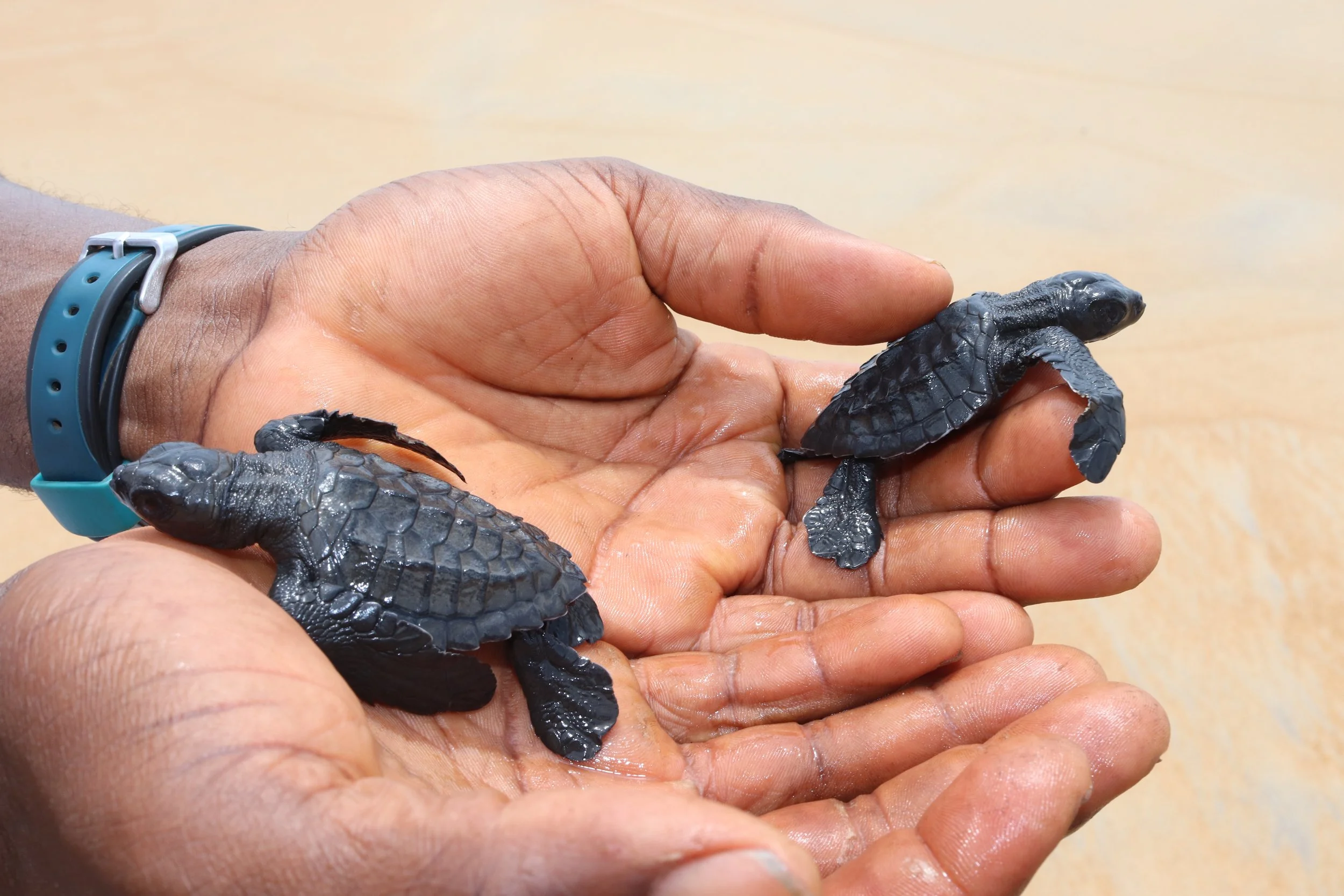
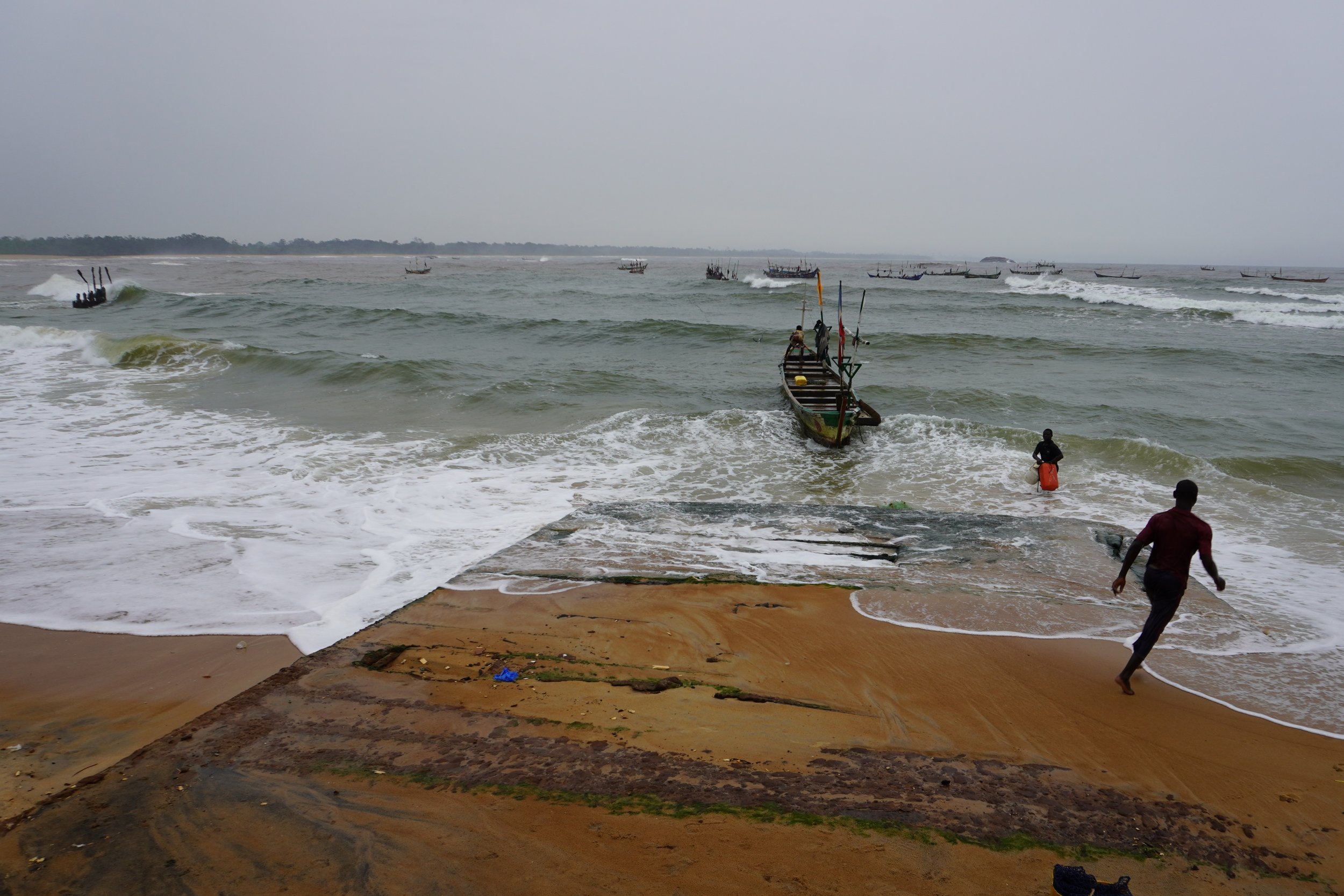
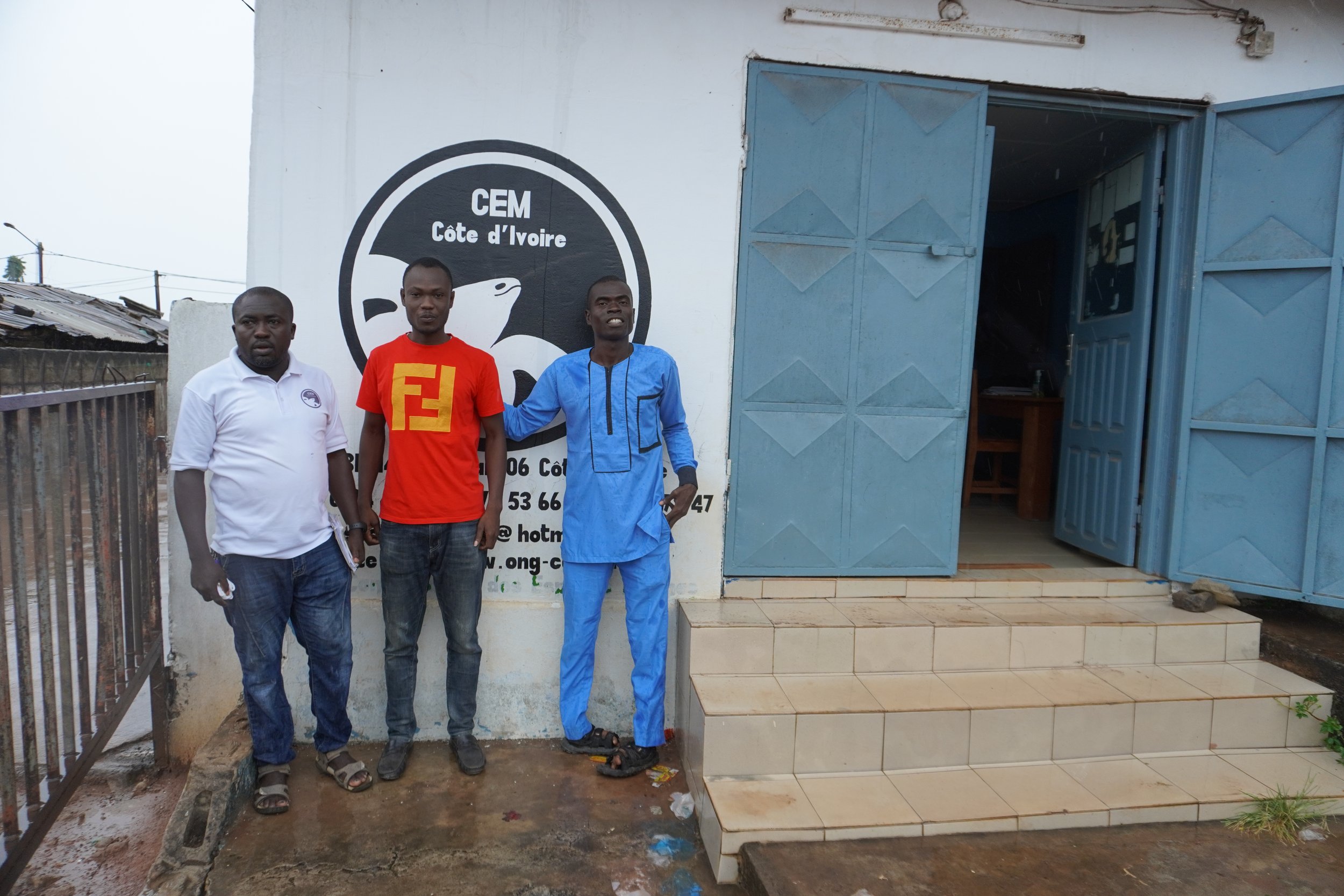
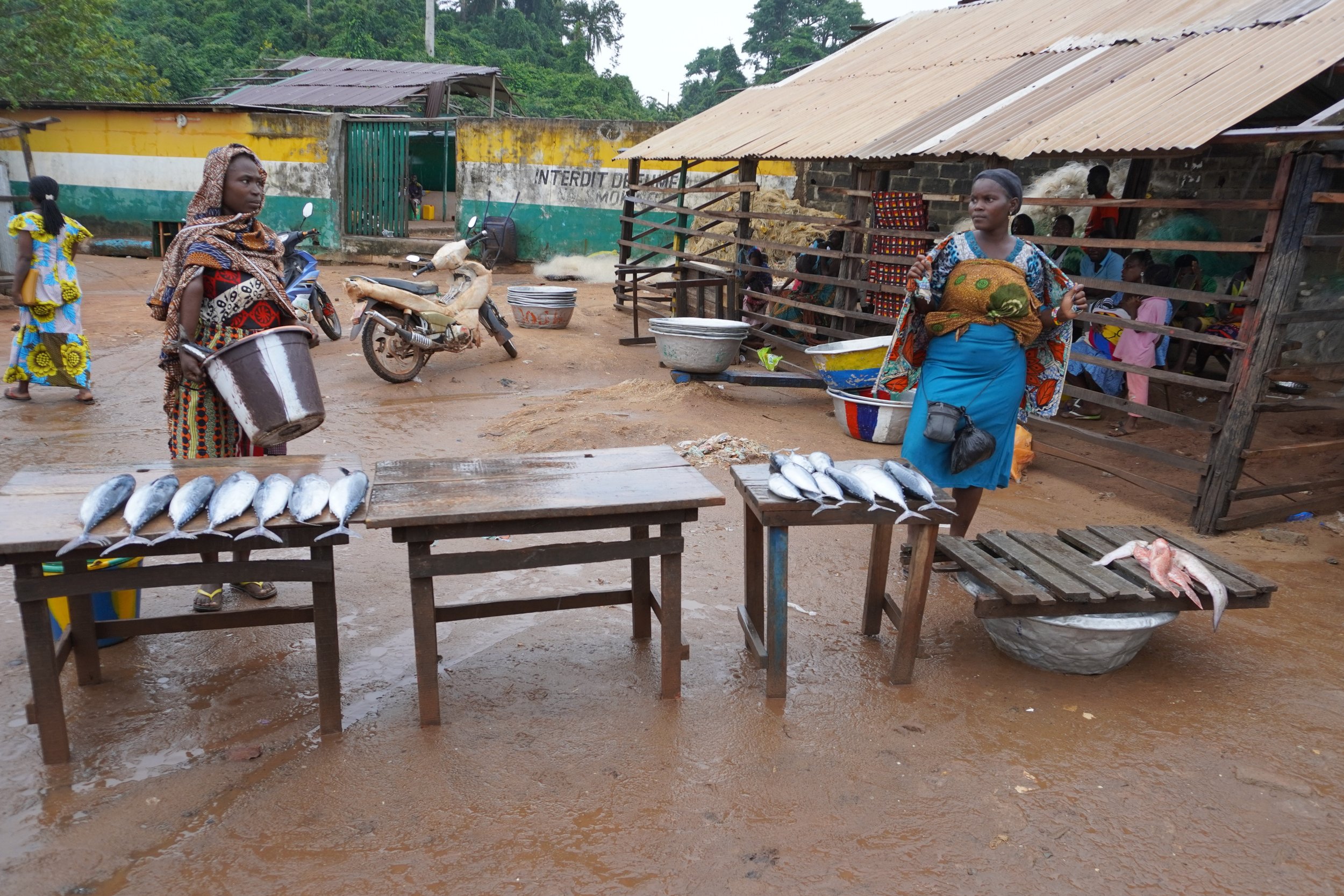
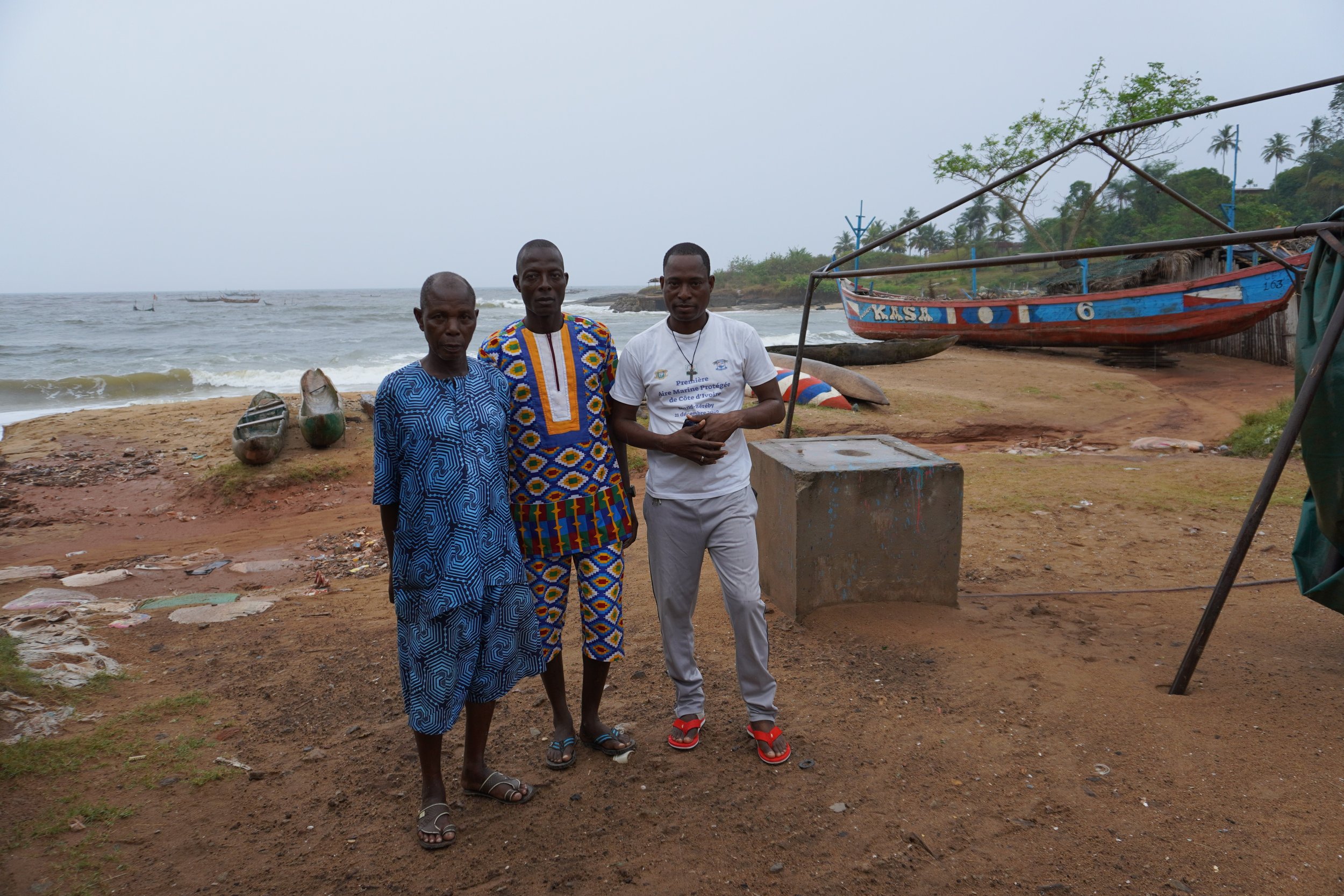
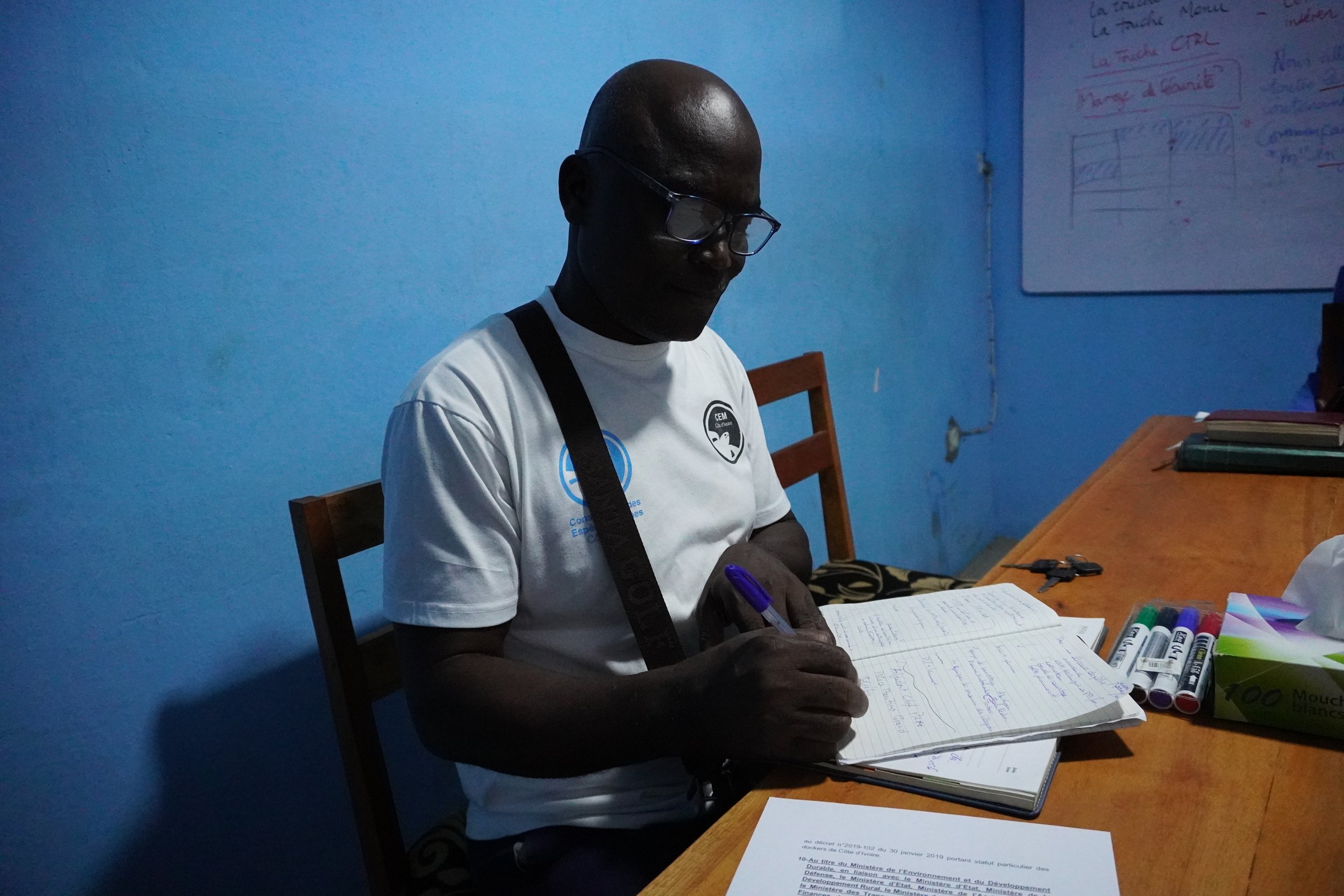
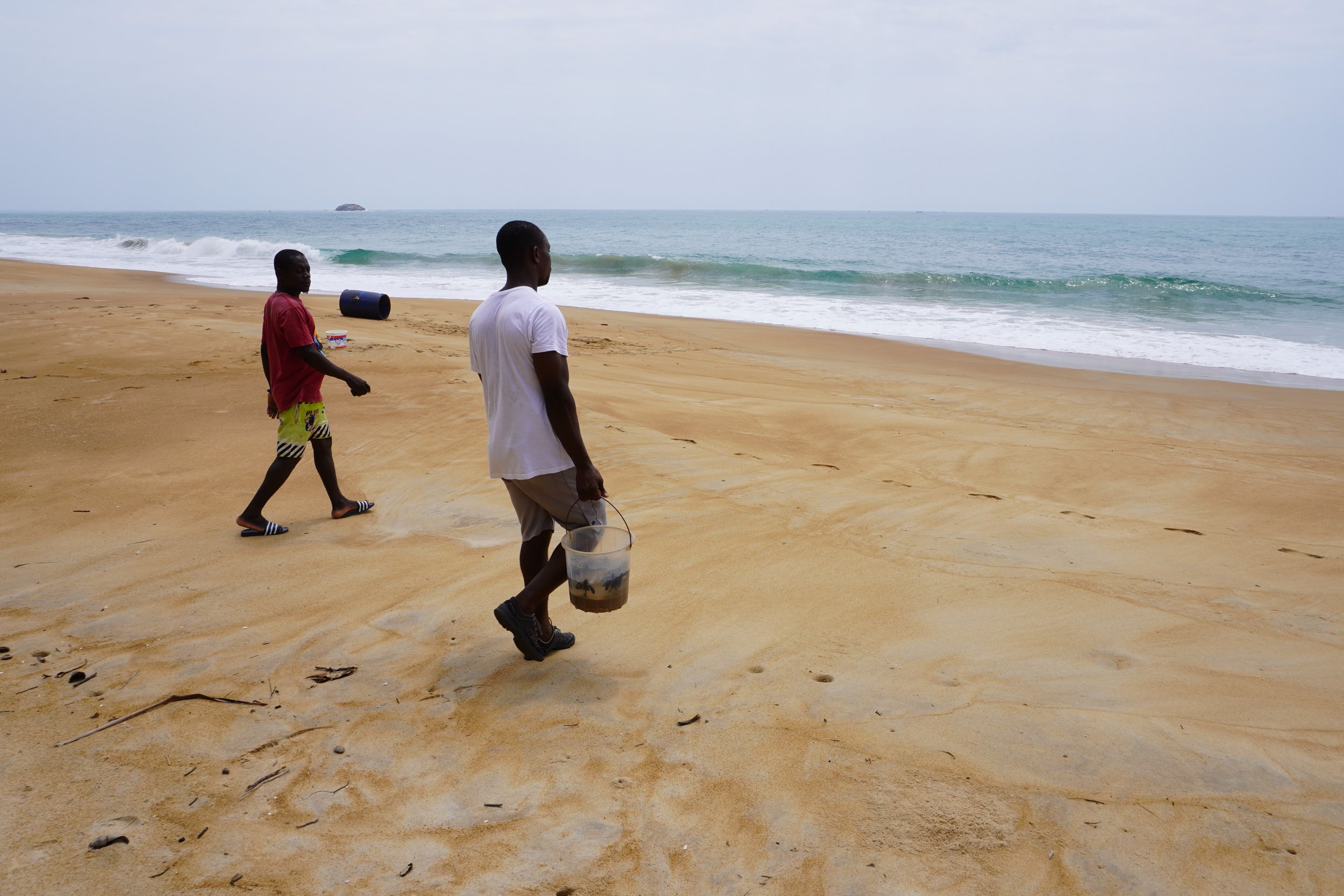
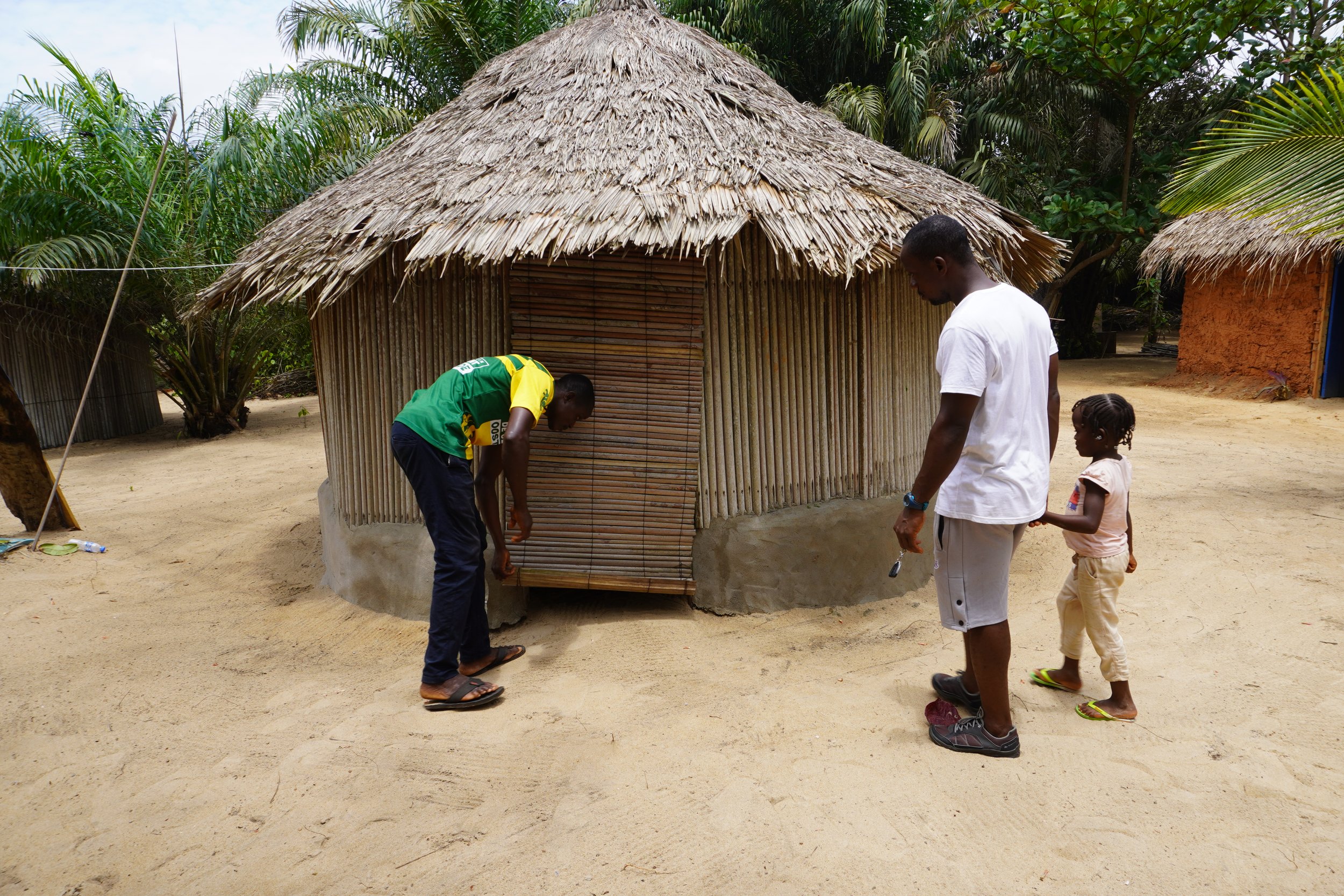
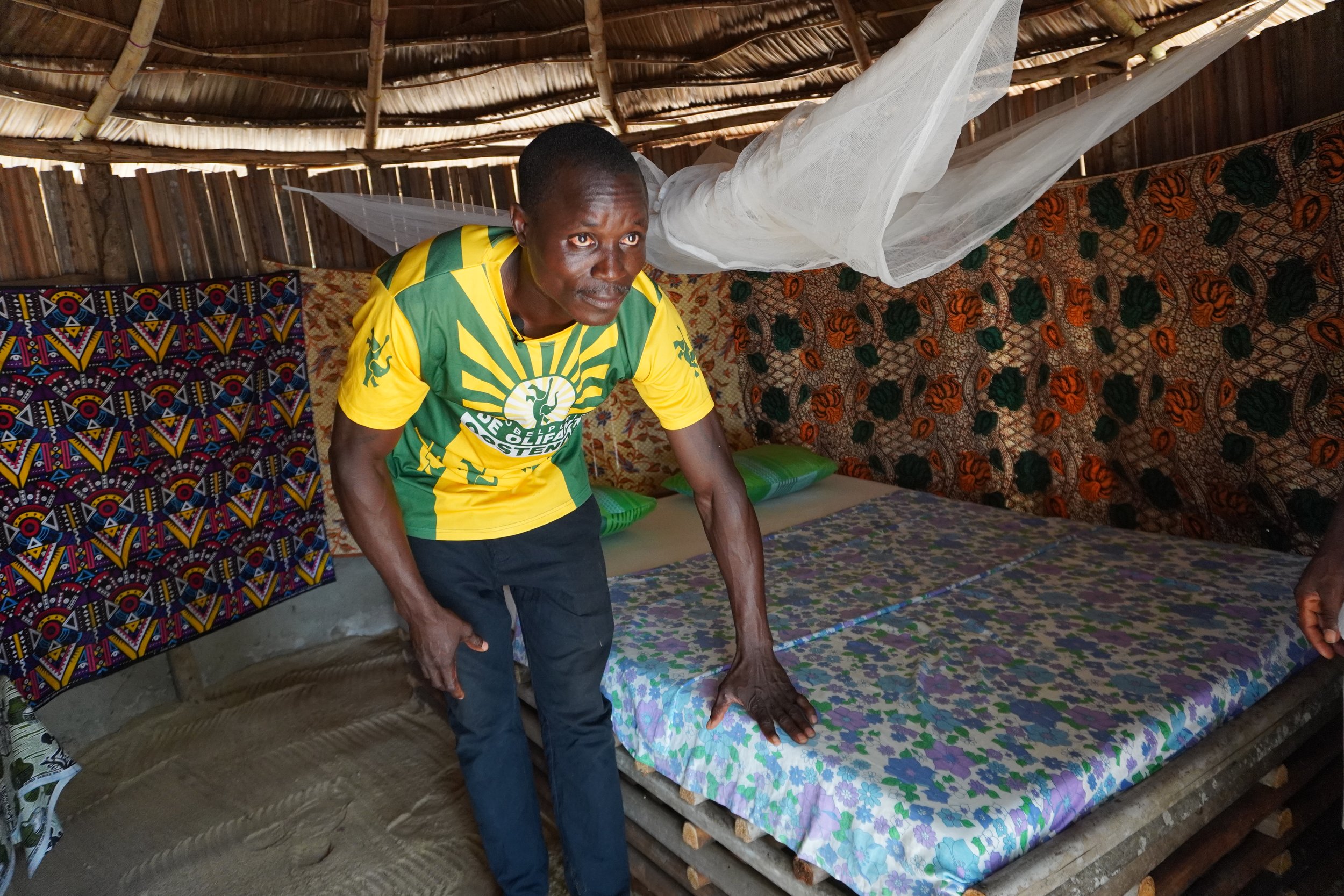
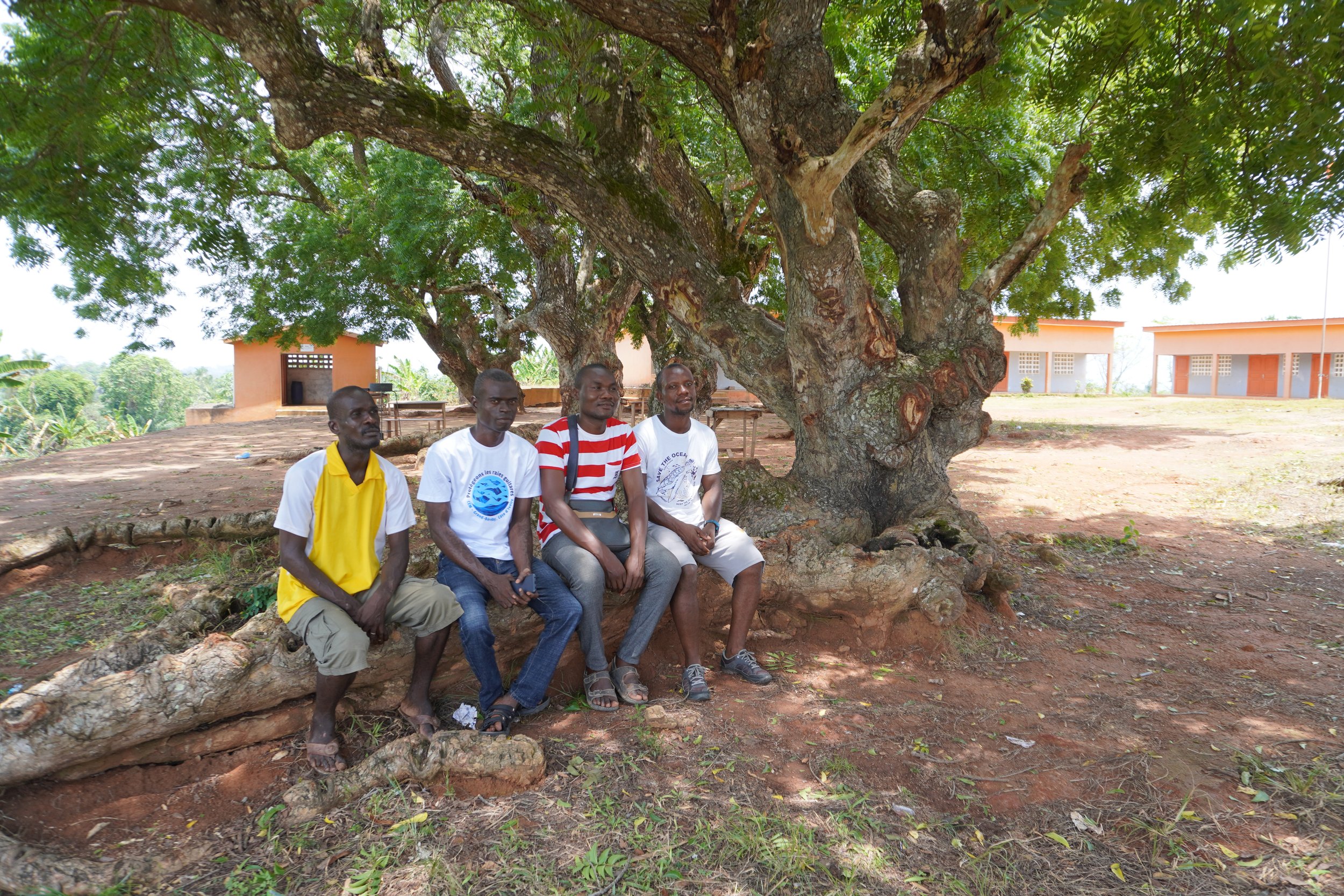
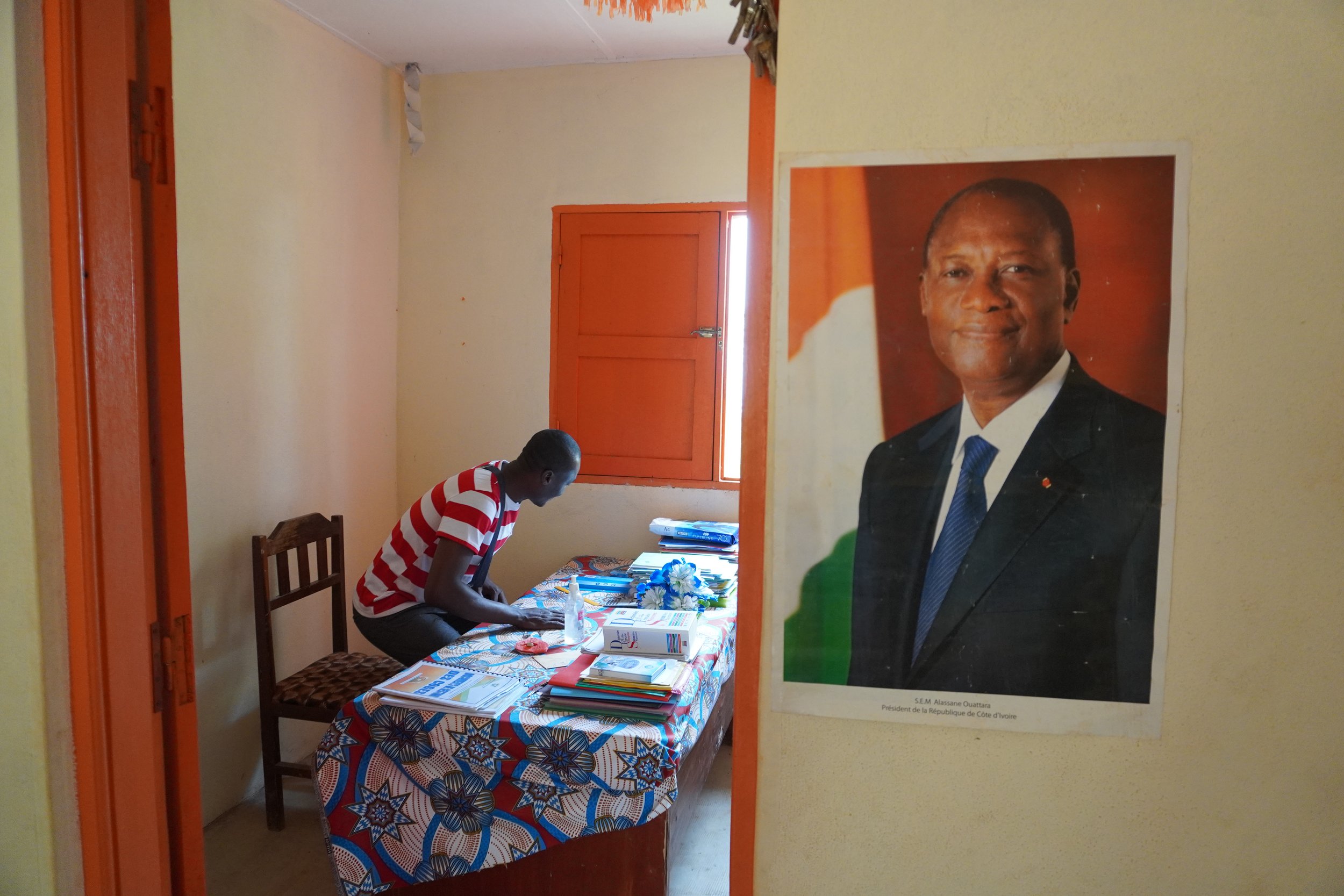
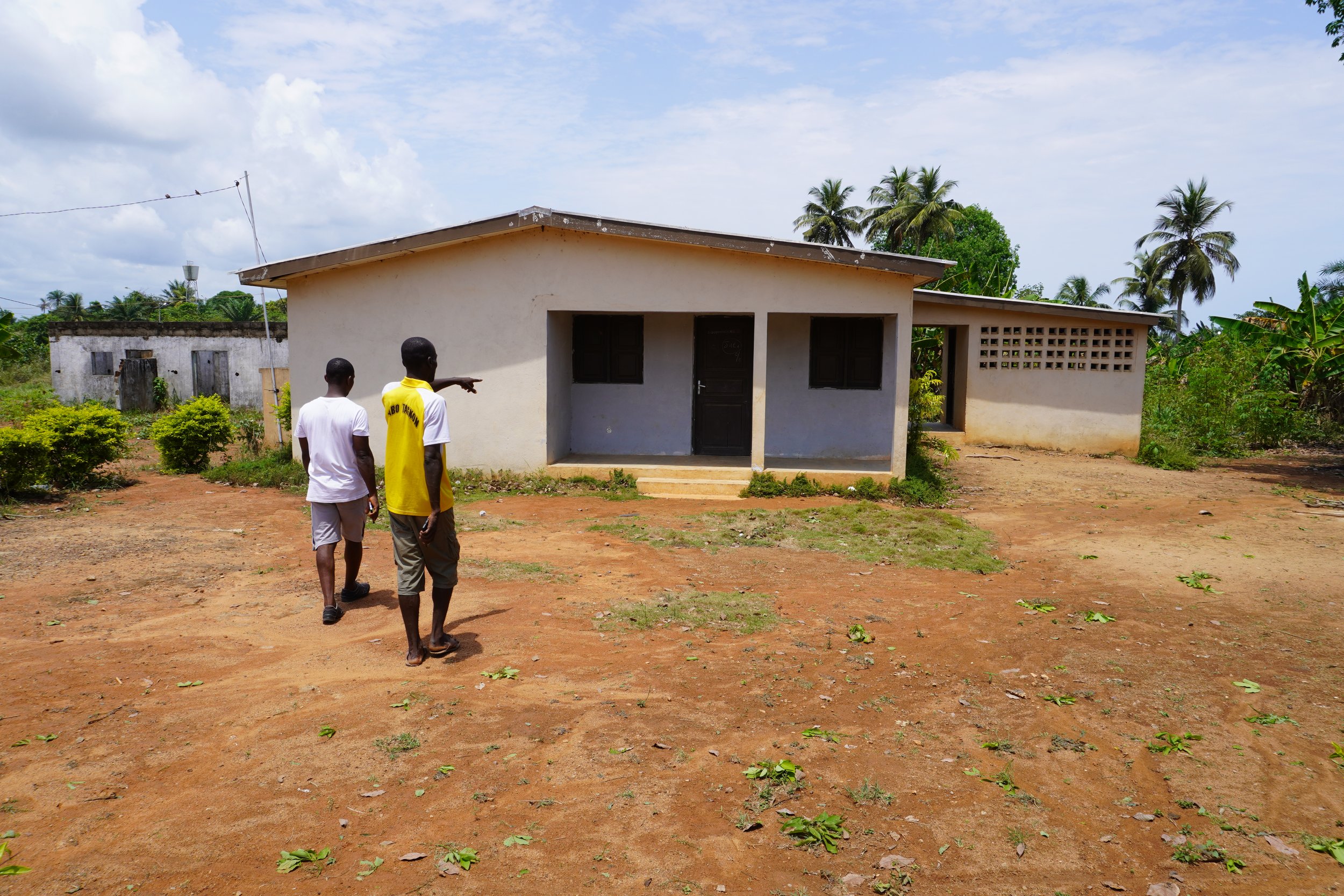
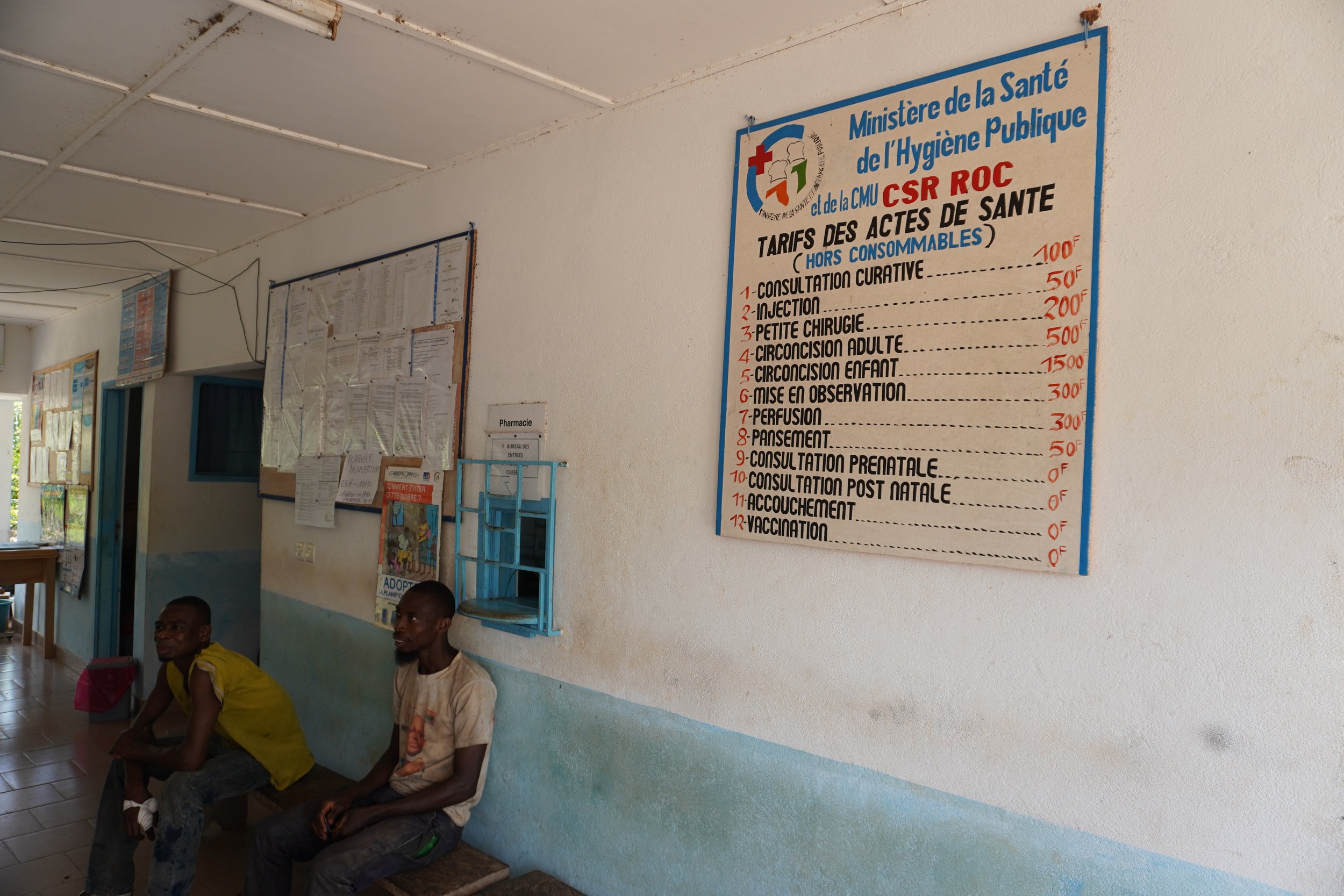
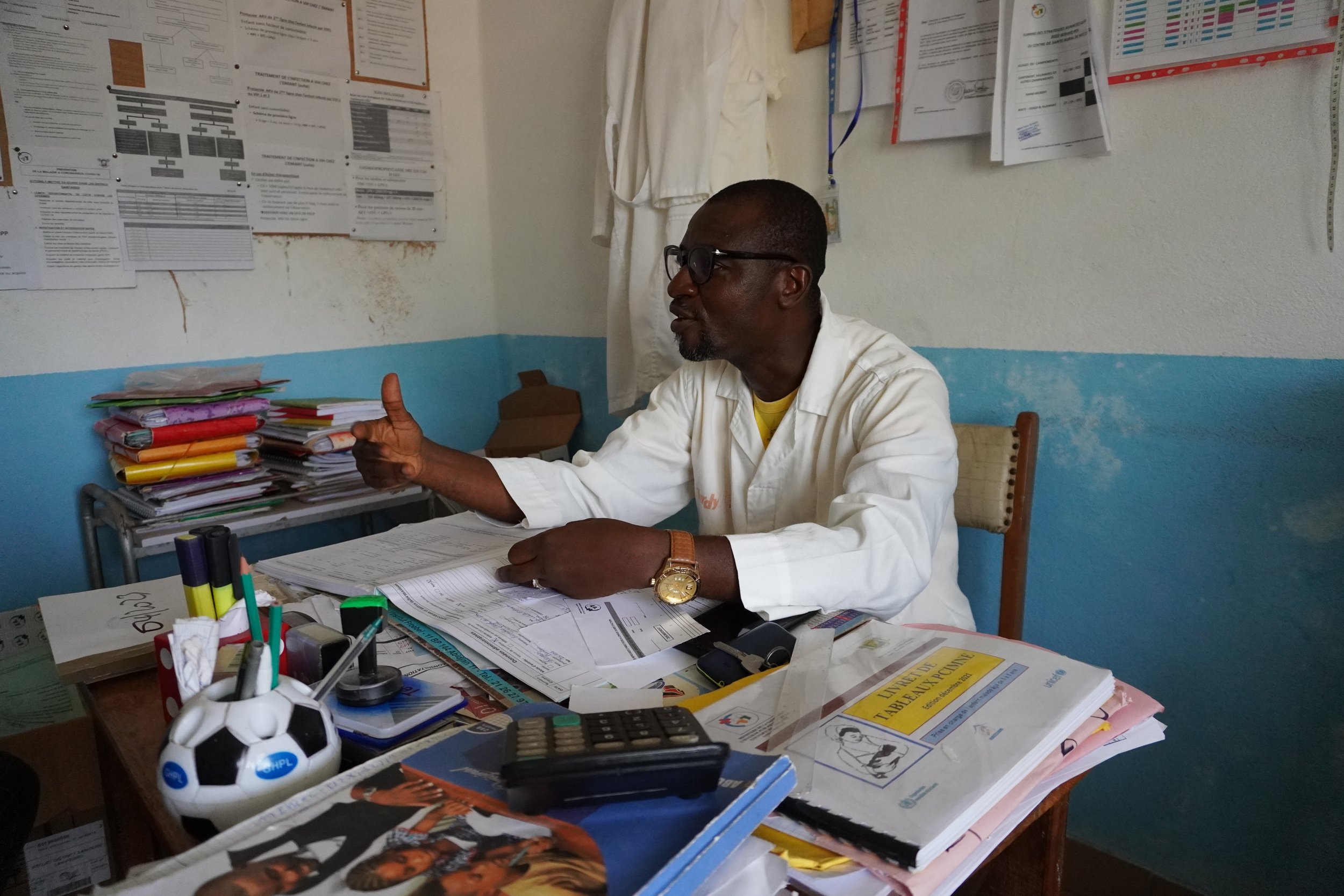
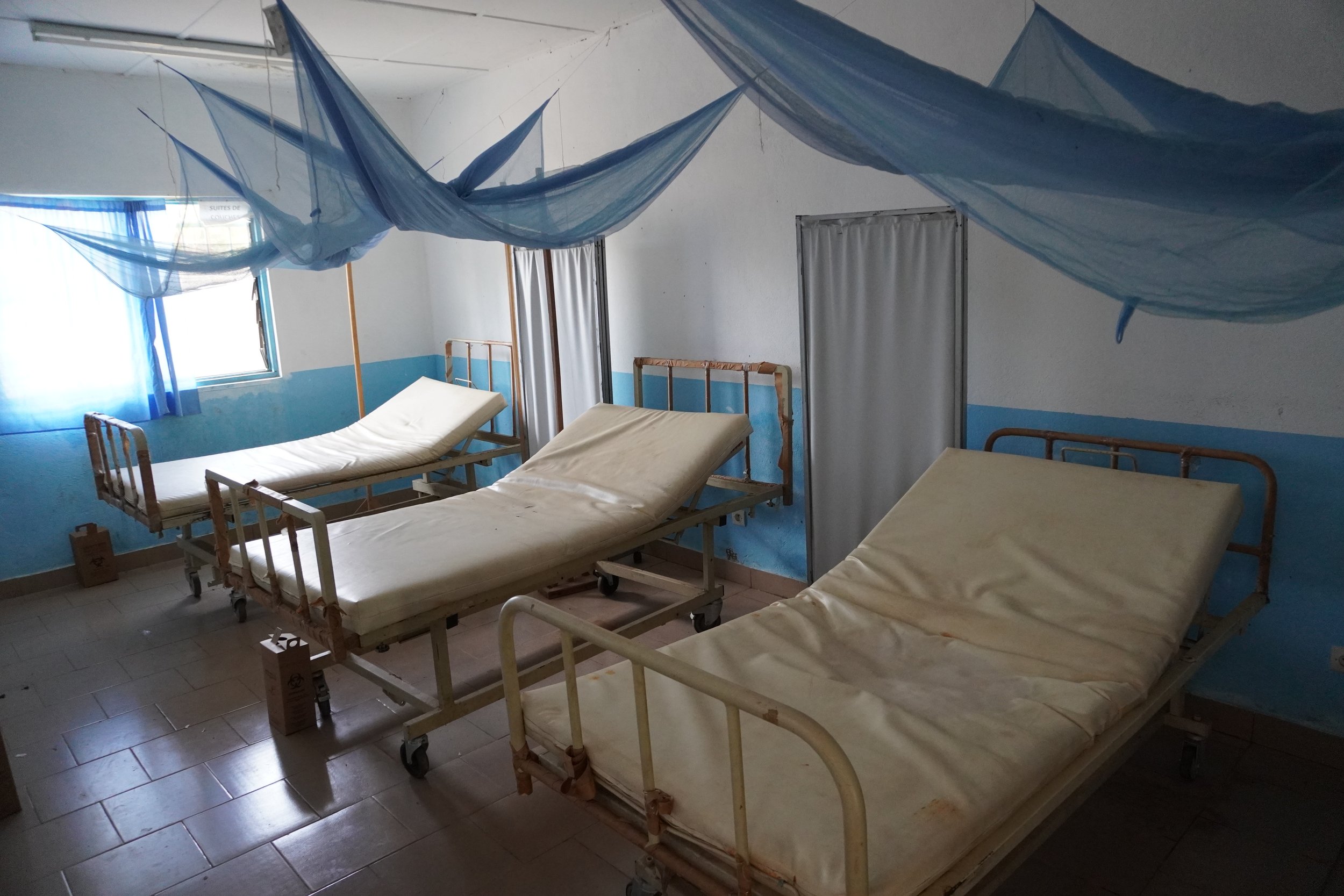
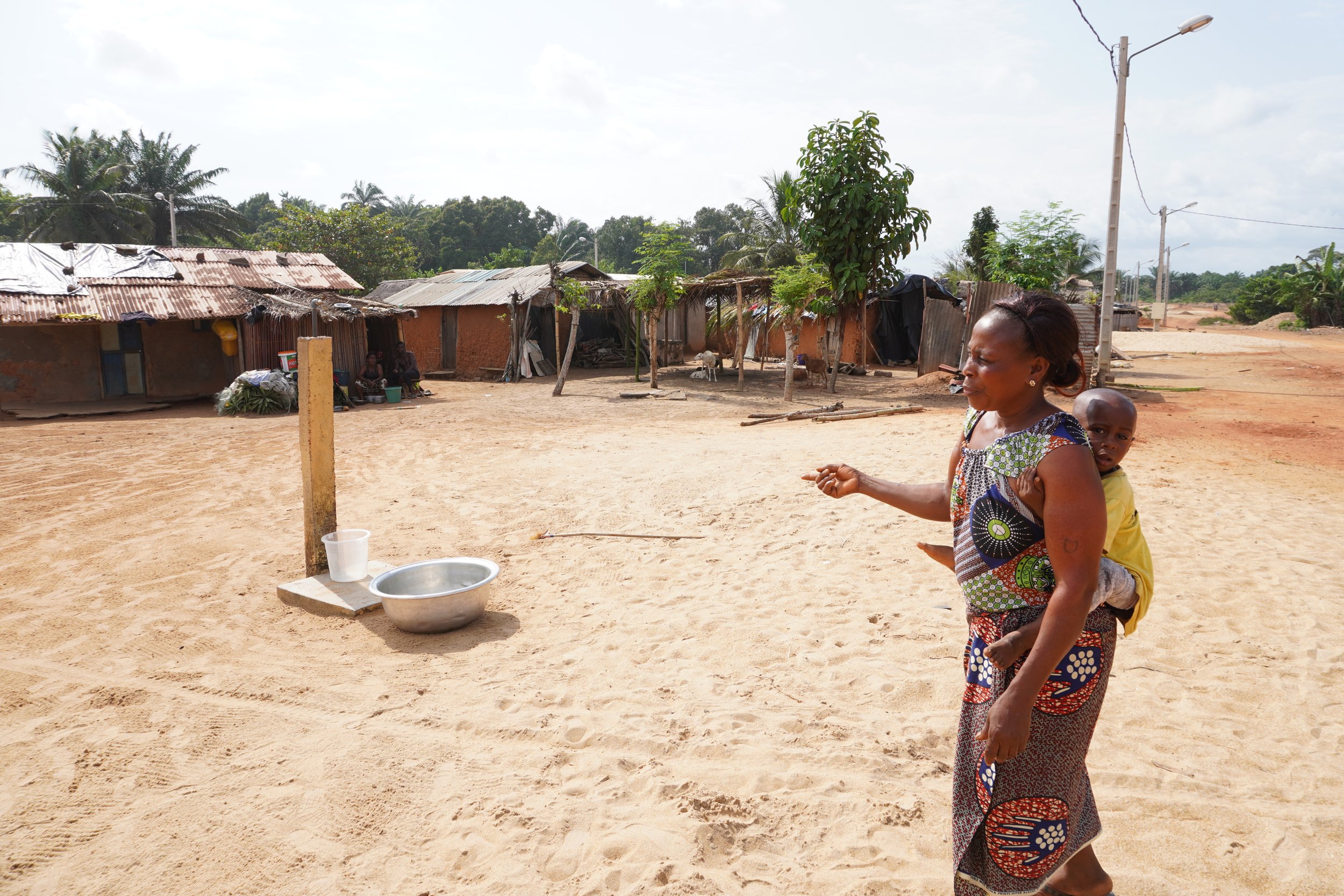
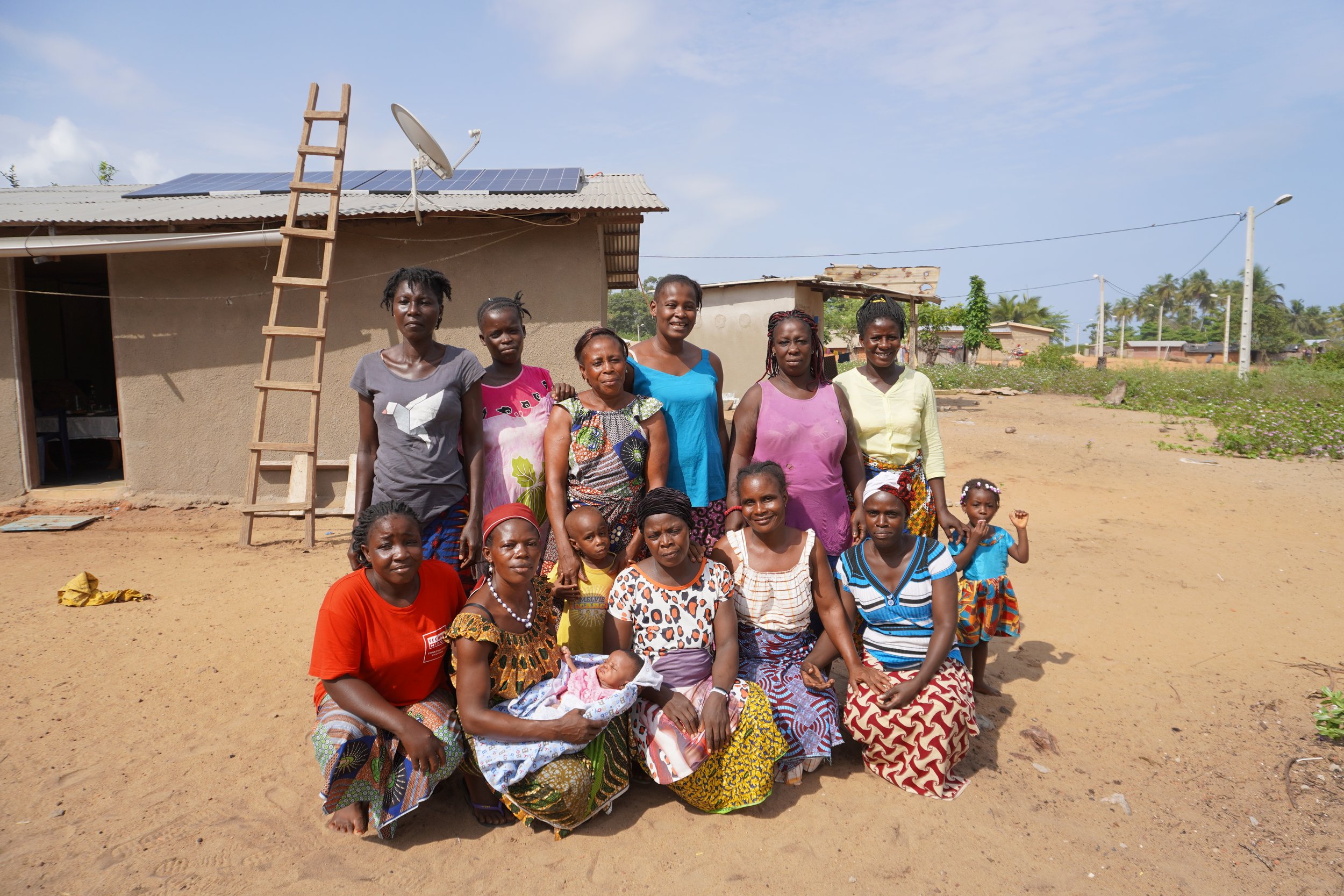
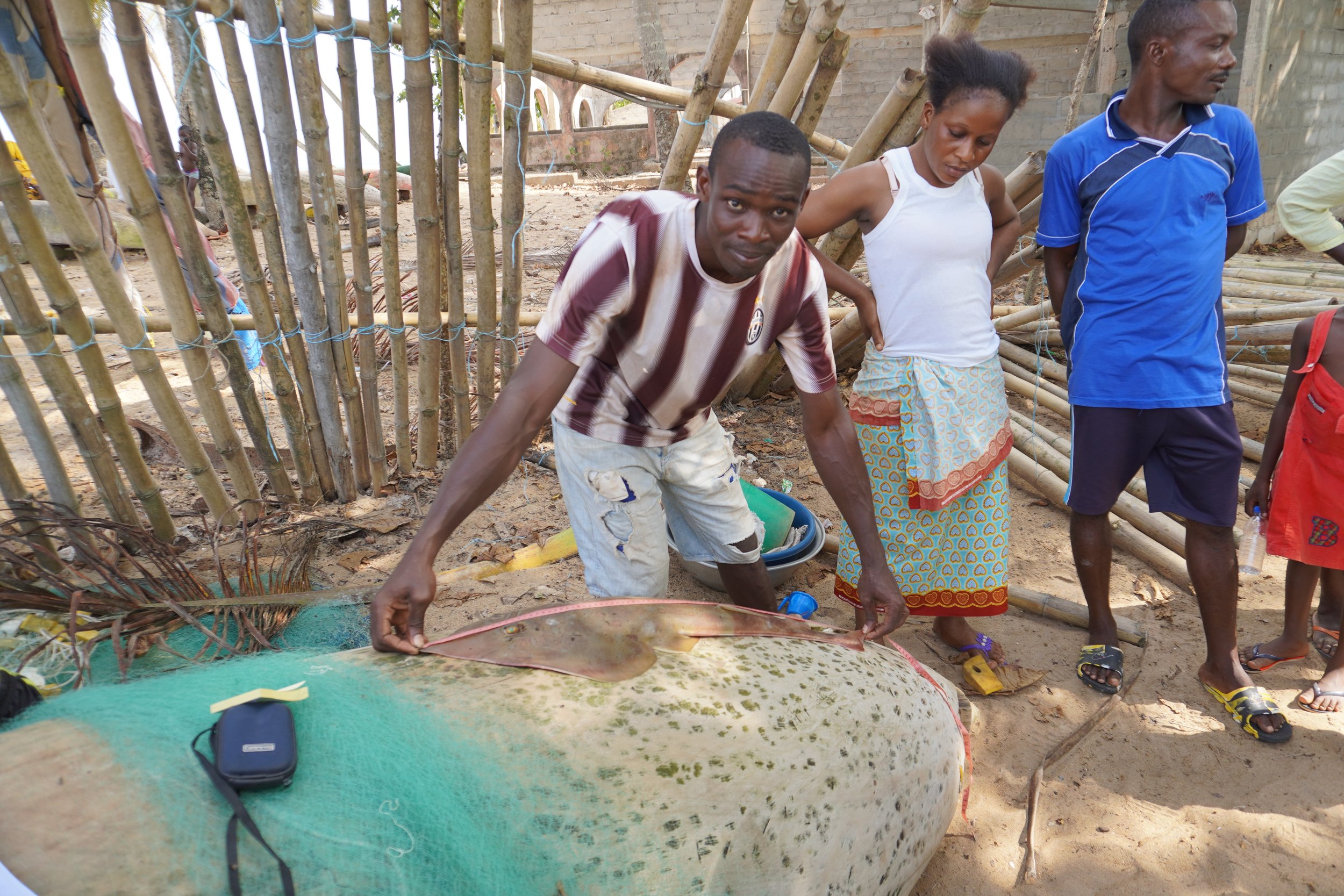
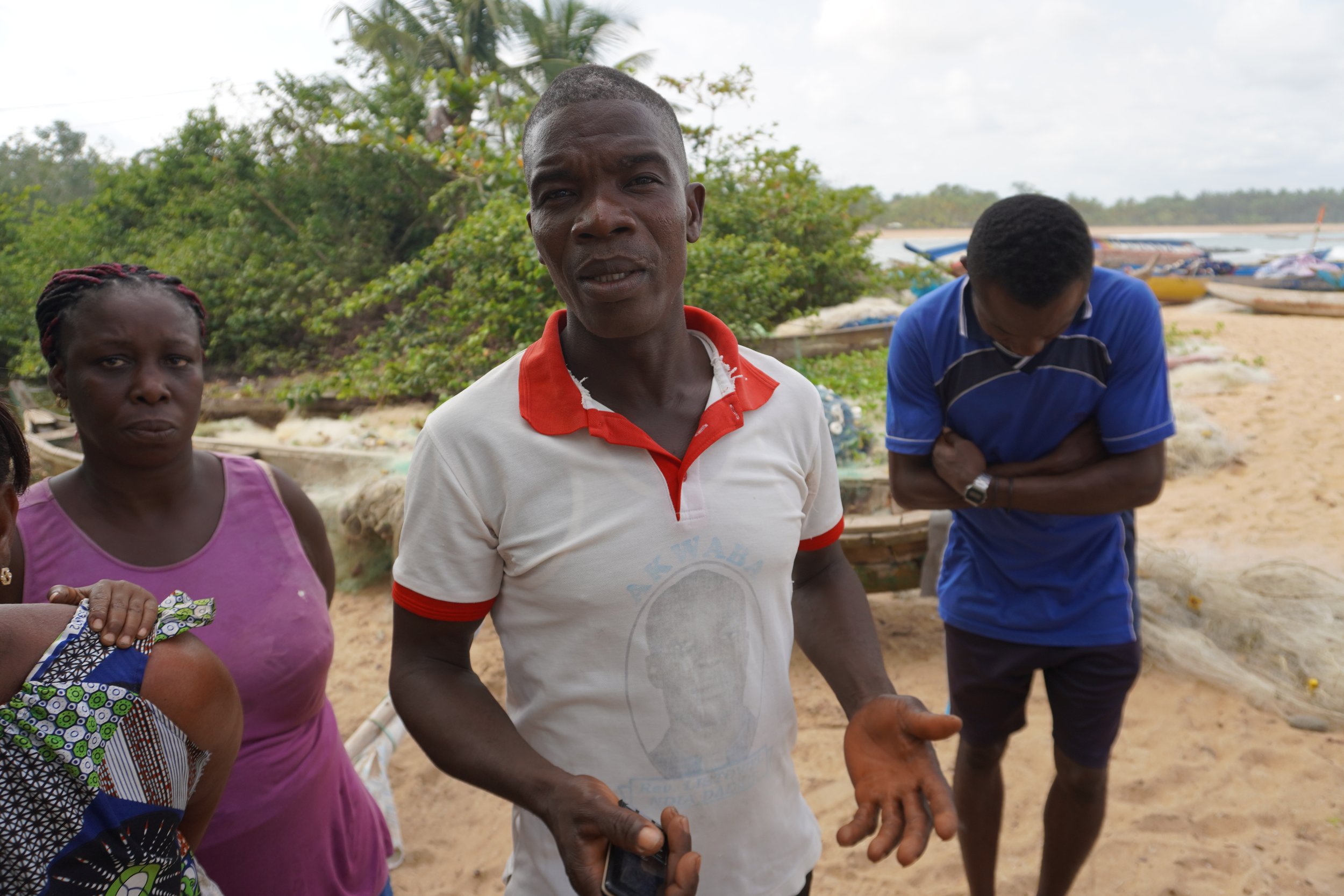
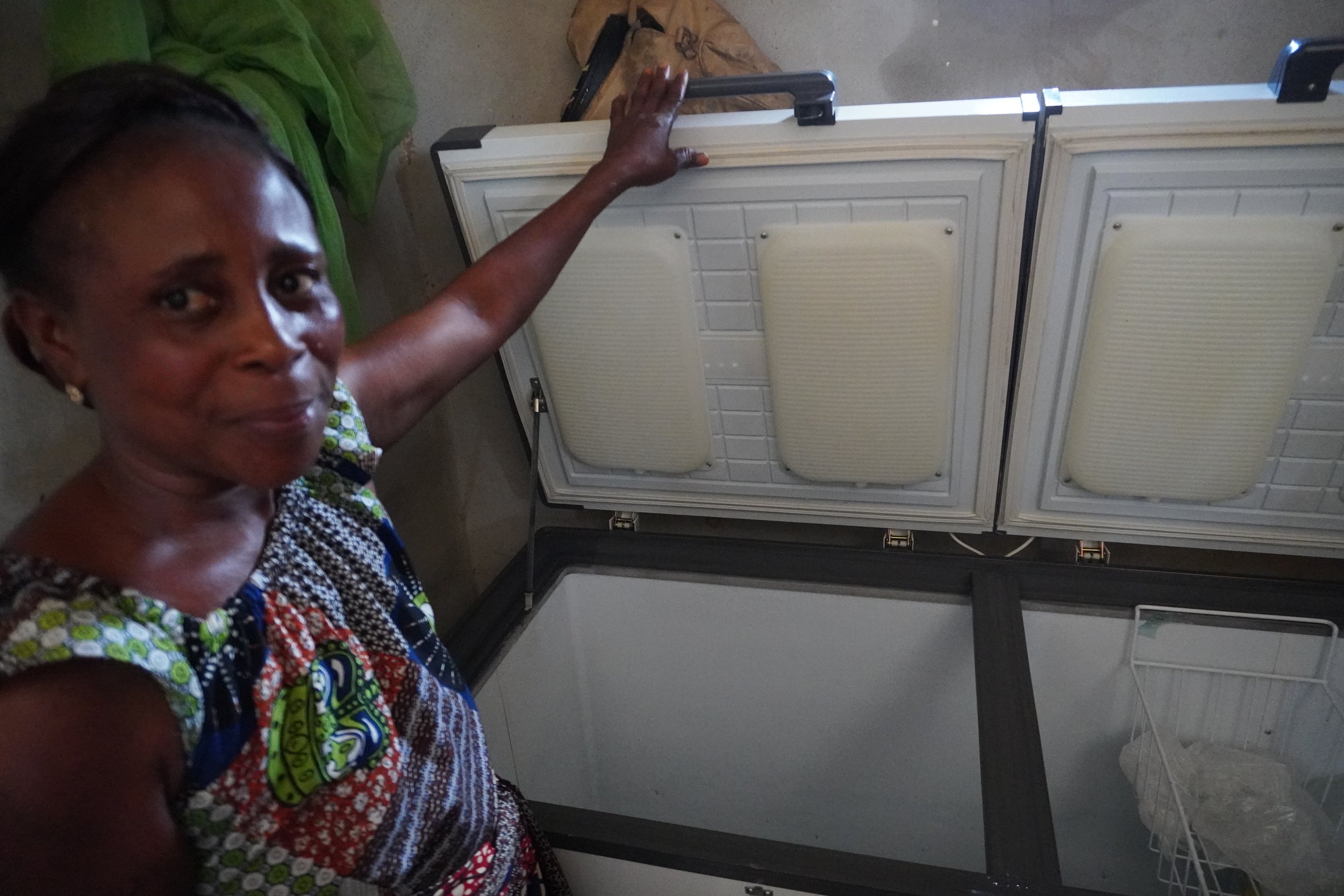
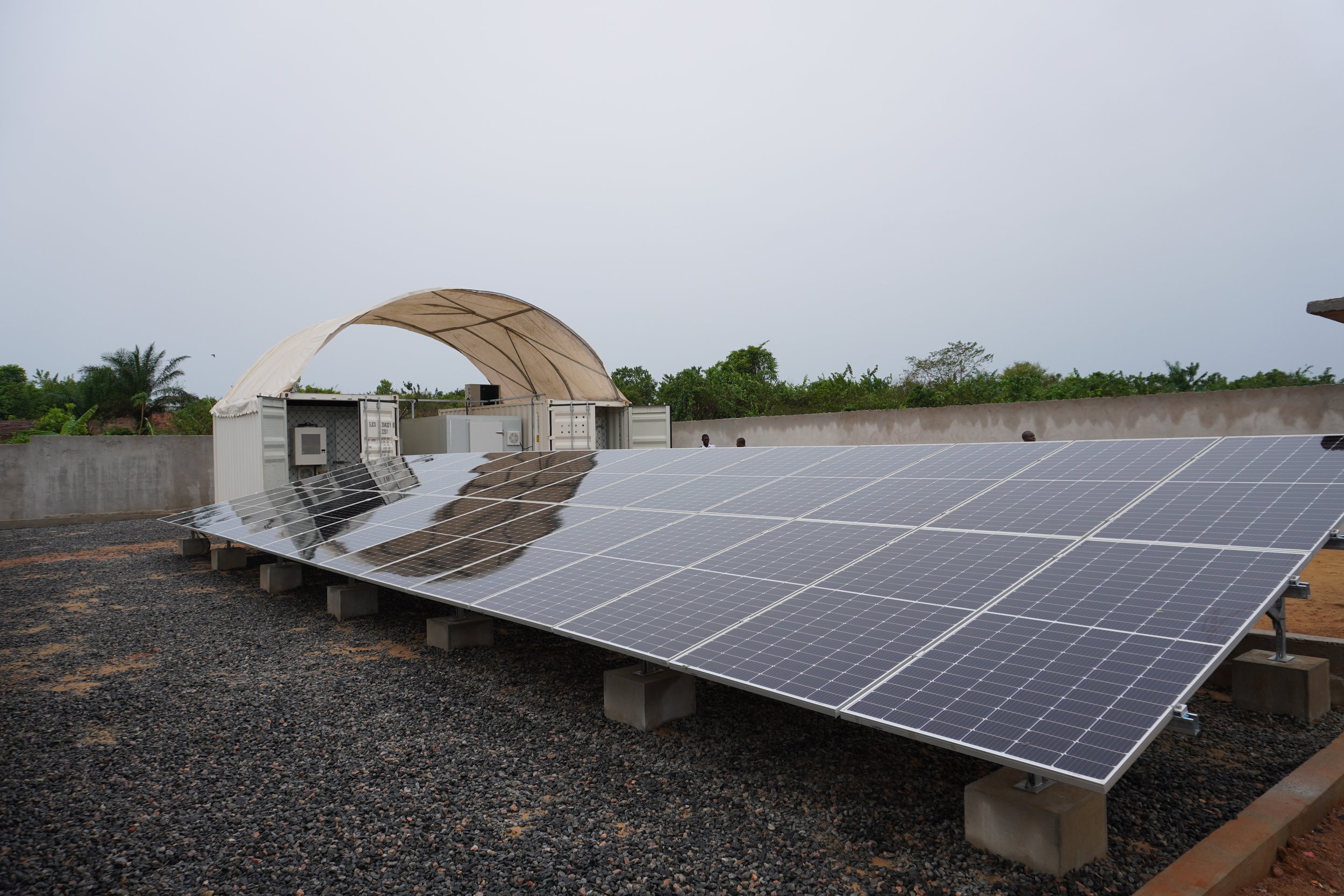
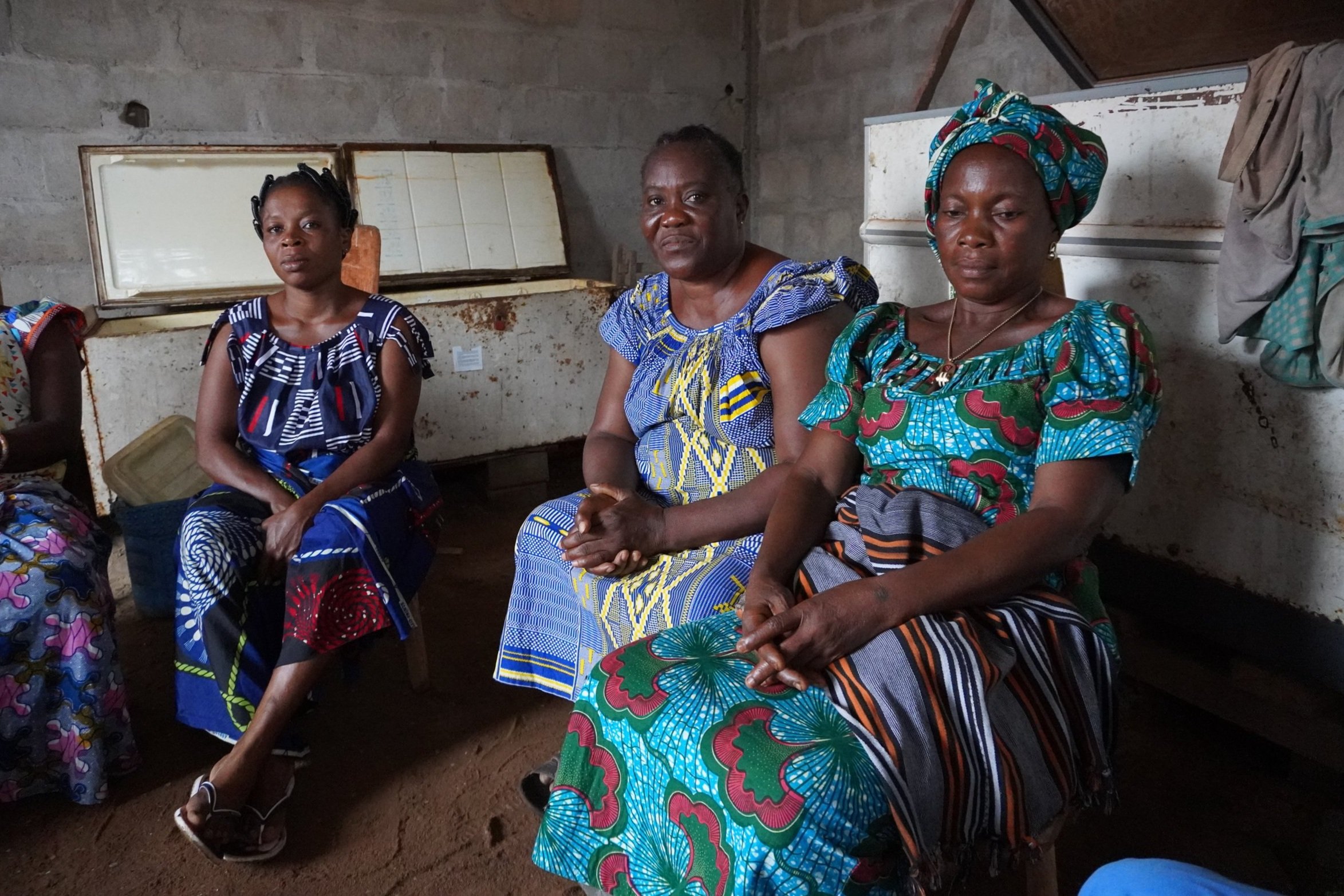
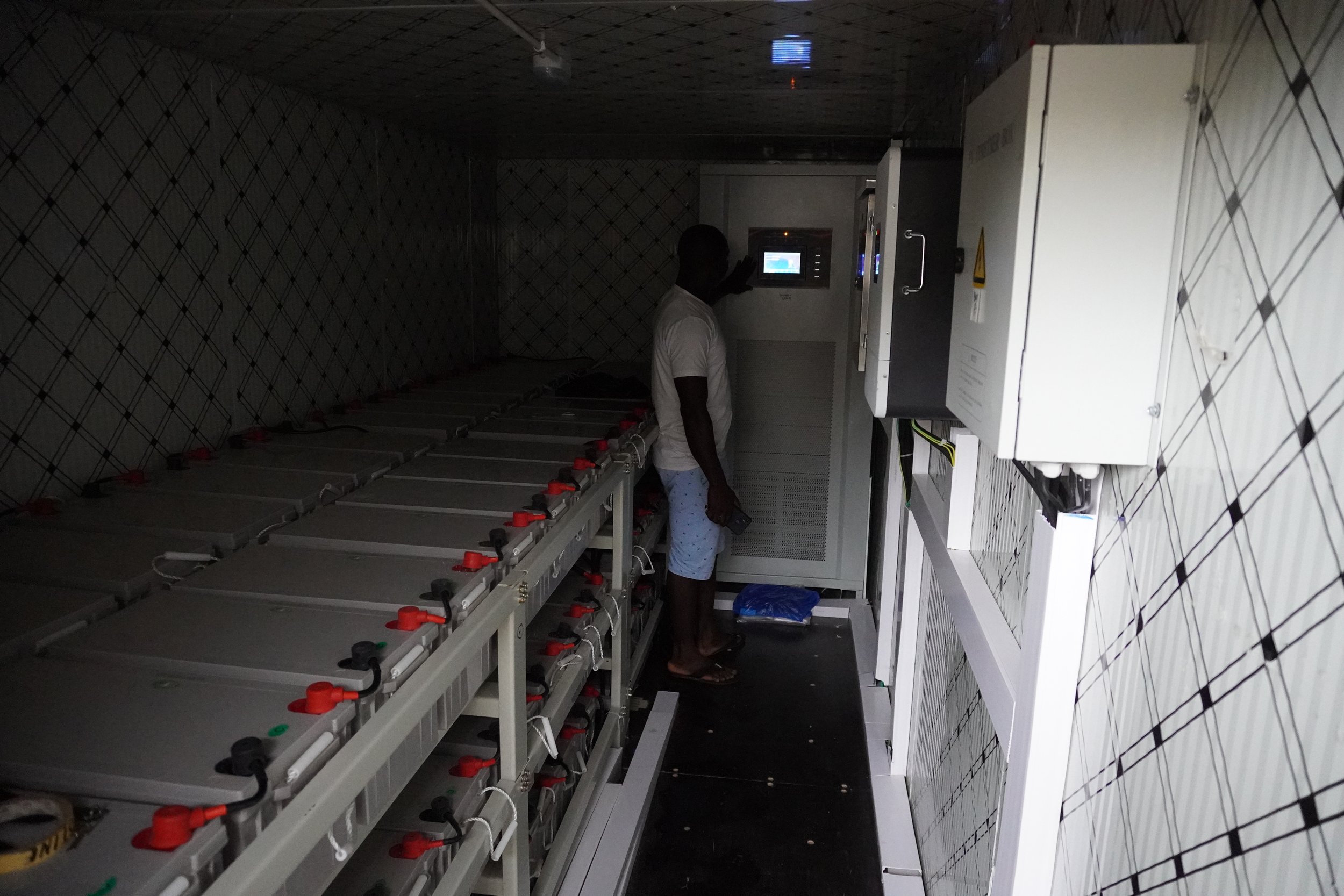
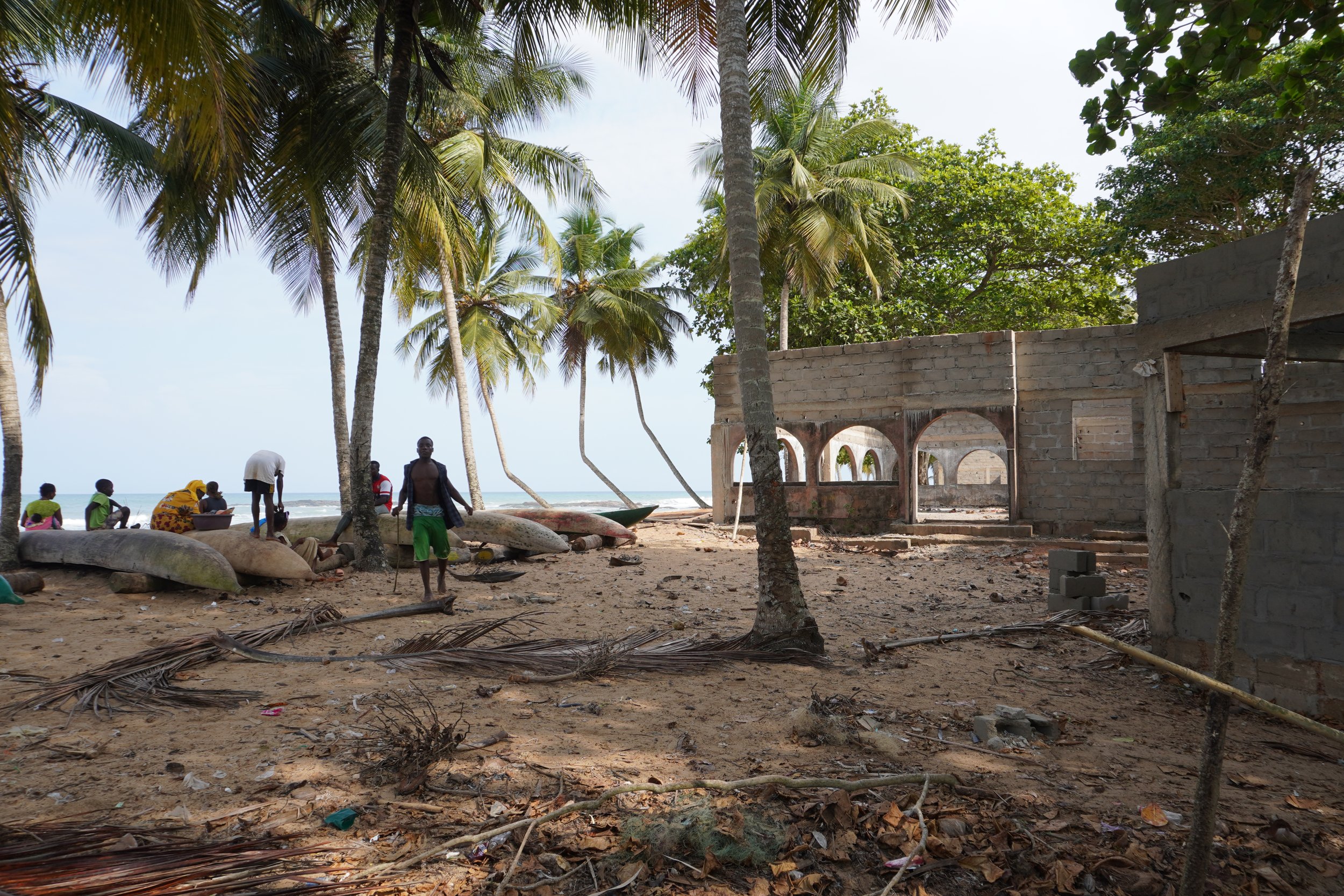
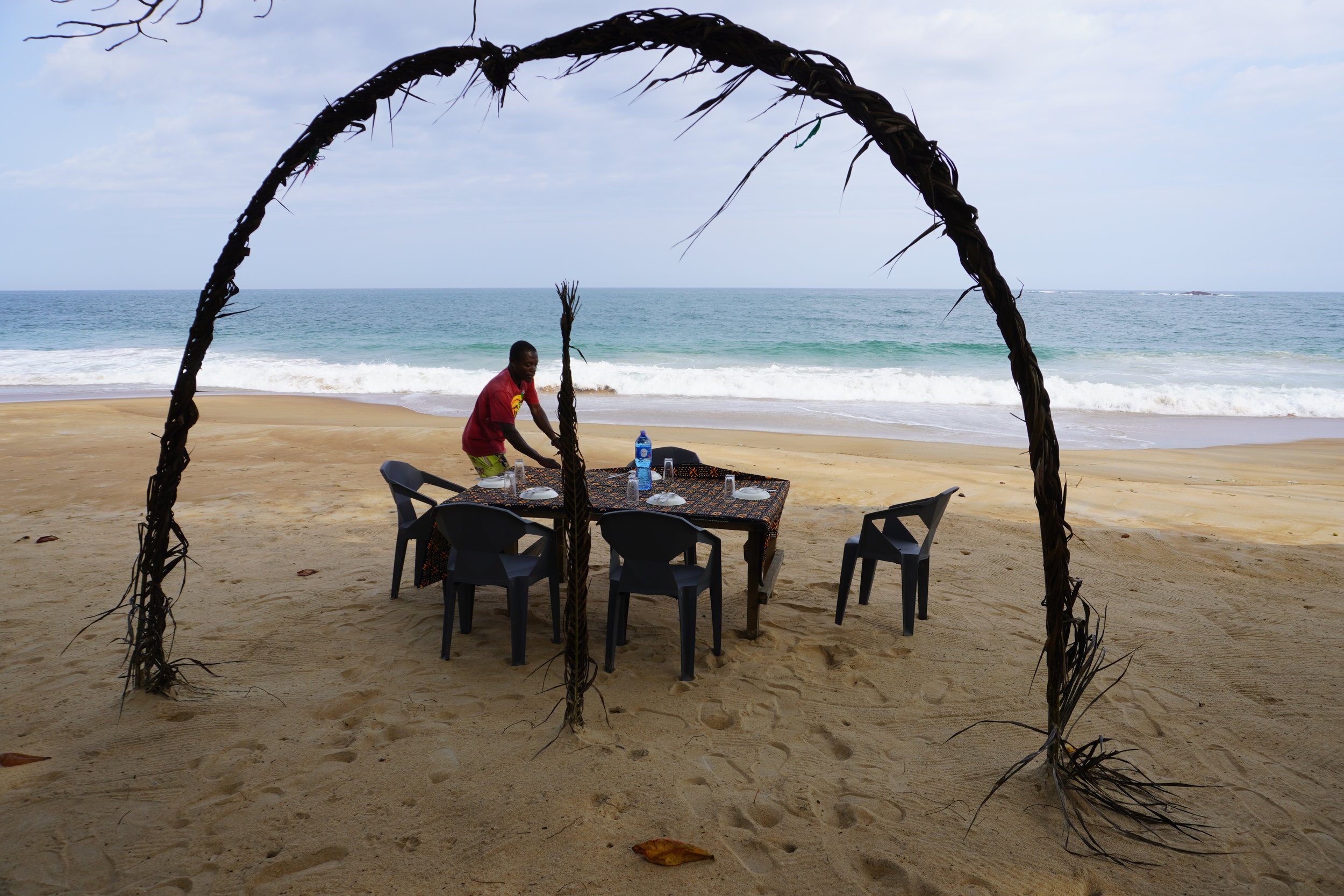
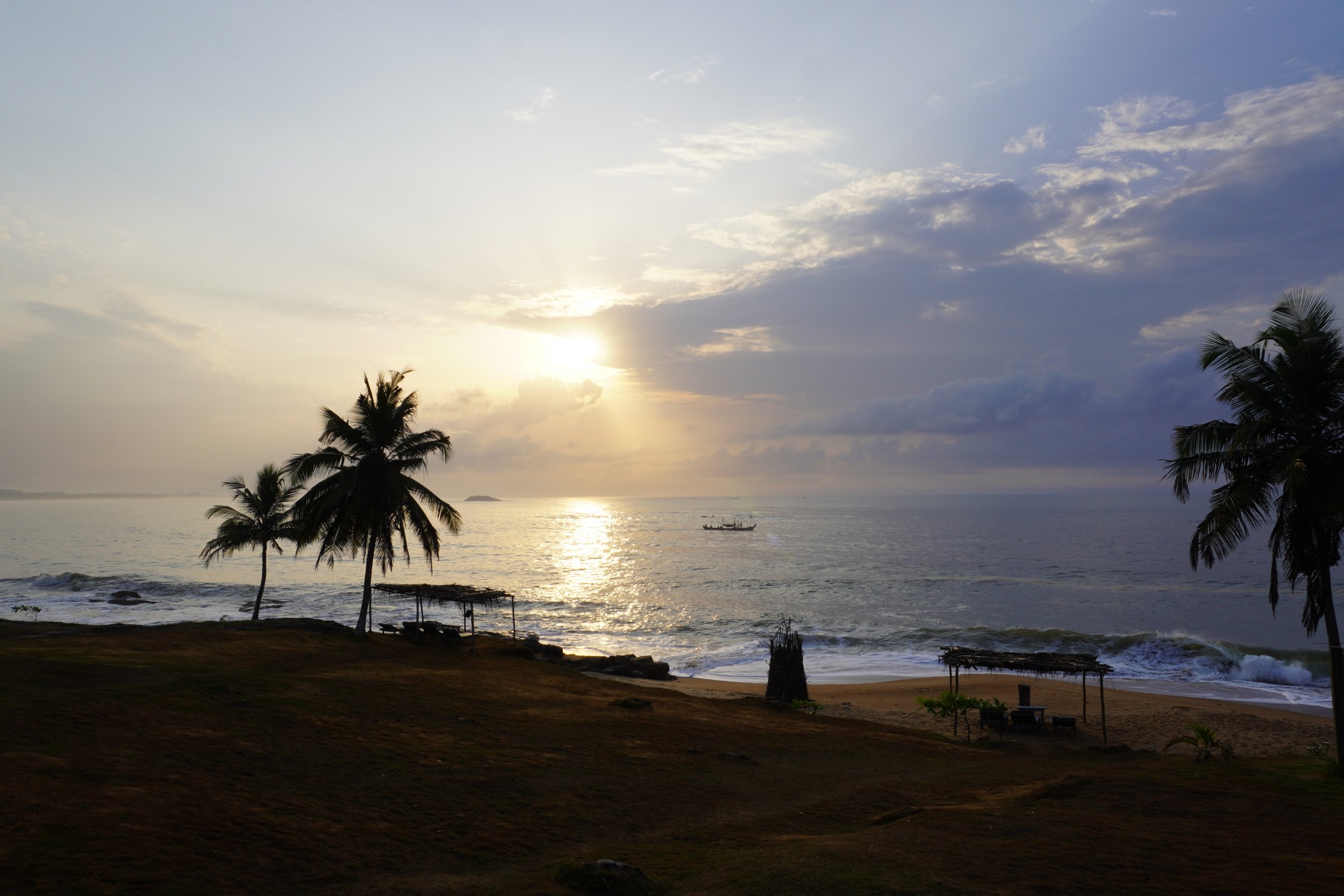





Eva Martinez, an Ecuadorian lawyer expert in human rights and gender and working at the Centro de Derechos Económicos y Sociales (CDES), discusses with Andre Standing the complaint against the Galapagos debt-swap the CDES filed along with other civil society organisations. The complaint raised concerns about the lack of transparency, participation and effective accountability mechanisms as well as the loss of sovereignty of Ecuador to manage its natural resources.